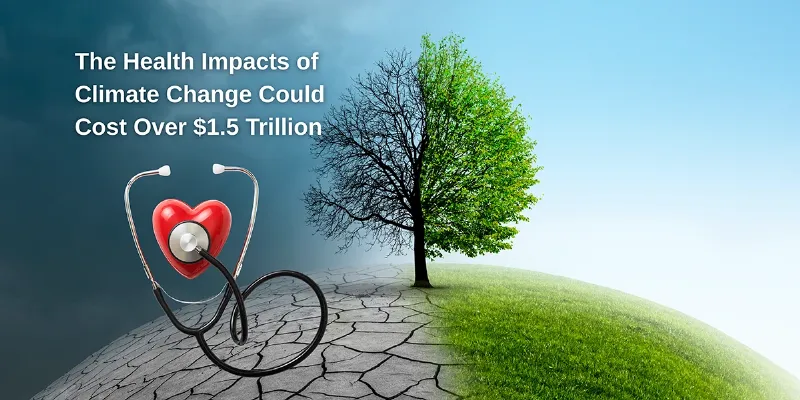Climate-Driven Health Risks to Put $1.5 Trillion in Productivity at Stake by 2050

18 September 2025
In the next 25 years, climate-driven health impacts could result in the loss of more than $1.5 trillion in lost output from select climate-health illnesses. This is according to a new report from the World Economic Forum, developed in collaboration with Boston Consulting Group (BCG), assessing climate-driven health impacts across four of the most affected economic sectors: food and agriculture, the built environment, health and health care, and insurance.
The report, "Building Economic Resilience to the Health Impacts of Climate Change," urges companies to act now to protect workforce health, build operational resilience, and safeguard productivity before the costs of climate adaptation become unmanageable. The findings highlight that adapting to extreme heat, infectious diseases, and other health risks accelerating due to climate change, is now a strategic business imperative.
"We are entering an era in which protecting worker health is proving essential to business continuity and long-term resilience," said Eric White, Head of Climate Resilience at the World Economic Forum. "Every year we delay embedding resilience into business decisions, the risks to human health and productivity climb, and the costs of adaptation rise."
Alongside shared disruptions, the analysis also outlines sector-specific vulnerabilities. In food and agriculture, climate-health impacts could drive $740 billion in lost output, placing the sector under strain and triggering cascading impacts on global food security. In the built environment sector, climate-health impacts are projected to result in productivity losses of $570 billion. The health and health care sector stands to lose $200 billion in productivity due to workforce climate-health illness, while rising climate-driven disease rates among the wider population could compound demand pressures. The insurance industry, meanwhile, is projected to experience a sharp rise in climate-health claims.
Still, the report finds that companies investing early in climate-health adaptation can benefit beyond risk mitigation. They can unlock new opportunities for innovation and growth, while meeting emerging market needs. Each sector is uniquely positioned to develop and scale solutions to emerging climate-health challenges. From climate-resilient crops that protect food systems and heat-stable medications that expand medicine availability, to cooling technologies that keep construction workers safe and new insurance models protecting communities against climate-health shocks, examples of innovation are already taking shape.
"Momentum on health adaptation is building, but financing and implementation are still far below what's needed," said Elia Tziambazis, managing director and partner at BCG. “The challenge now is to scale proven solutions fast enough to keep pace with climate change, mitigate its impact on workforces, and invest in the innovation that will define the next generation of resilience services and products.”
The report's analysis covers seven major health risks exacerbated by climate change, and models the economic cost of lost output due to climate-driven worker illness and death between 2025 and 2050. It sources health data from scientific literature and employment data and economic cost from the International Labour Organization and World Bank data.











Comments
No Comments Yet!